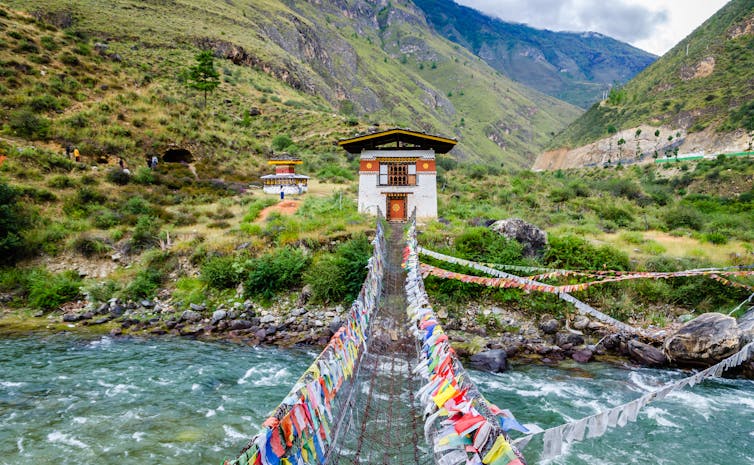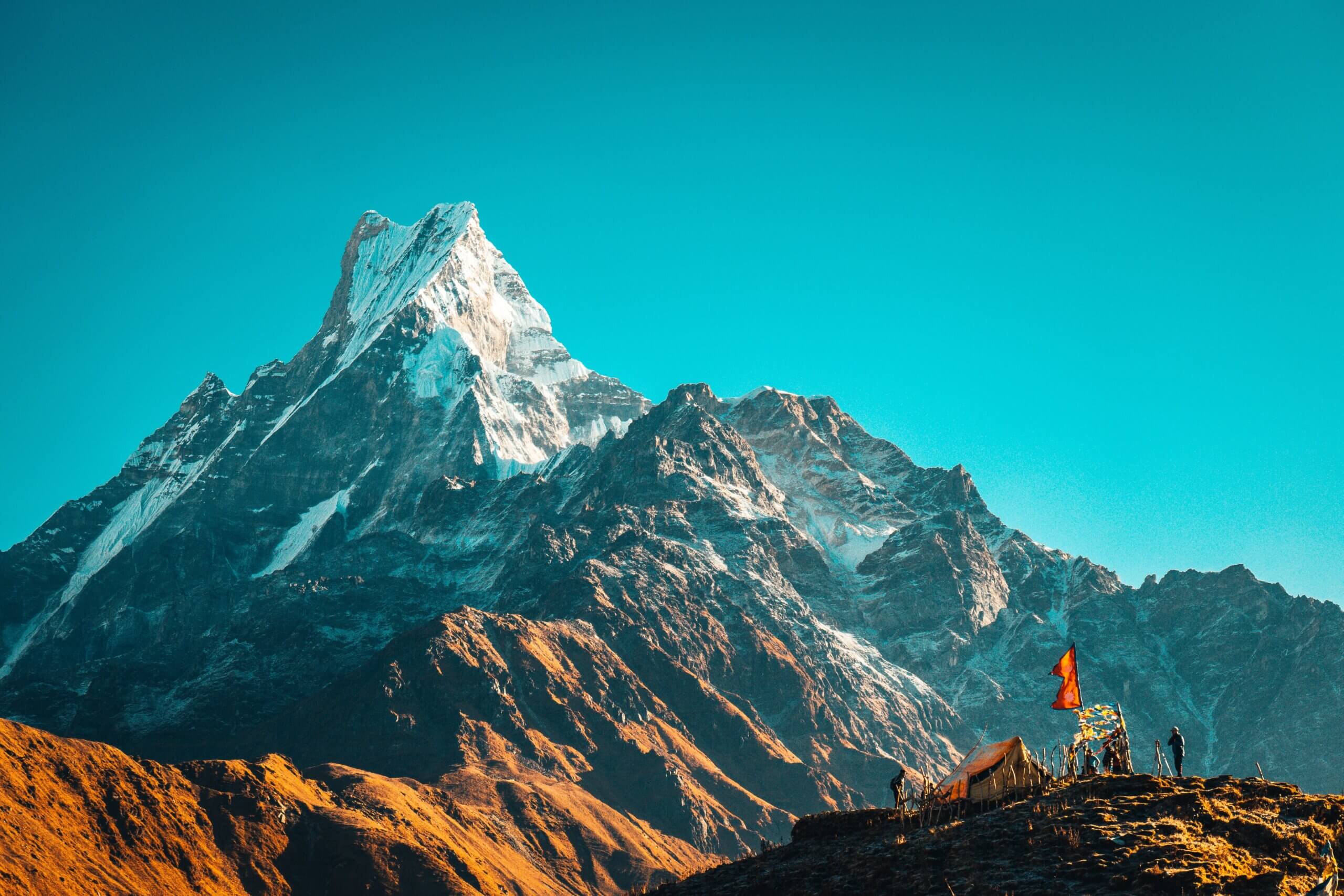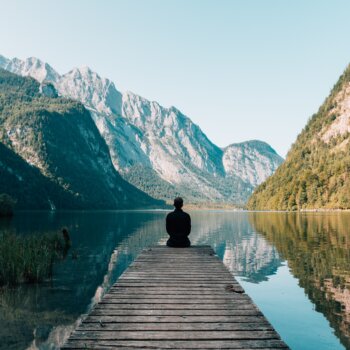Key Takeaway:
I recently took a journey to Bhutan, a small Himalayan kingdom known for basing its national policy decisions on happiness. On my journey, I learned some important things about happiness, such as that it can be found in the everyday, that goals can be helpful, and that it is important to let go of the idea of ever reaching Bhutan many times. I also learned that difficult emotions are a natural part of life, and that happiness should be grounded in connection, purpose and hope, yet has room for sadness and anxiety. There are many stories about what a happy life entails, but they are not always backed up by reliable evidence. One example is the “when I achieve this, I will be happy” story, which ignores the importance of having good quality relationships, looking after our mental and physical health, and living meaningfully in line with our beliefs and values. These stories persist because they support an economic system that is designed to increase GDP rather than improve the wellbeing of people and the planet. Warm and loving relationships are essential for living a happy life, but they can be difficult to come by. People’s kindness and generosity was the most surprising part of my cycle journey.
I learned to let people in, which led to deeper connections and happiness. To get through a crisis, we need support from others and time to make sense of what has happened. Nature is essential for our wellbeing, and nothing beats lying under the stars after a full day’s cycle.
It’s one thing to know what makes people happy, but quite another to live a happy life oneself. I didn’t get a true taste of happiness until I quit my decade-long career as a happiness academic, packed all I’d need for many months onto a bicycle, and began meandering my way around the world to Bhutan.
For those unfamiliar with Bhutan, it’s a small Himalayan kingdom, famed for basing all its national policy decisions on happiness.
Quite the destination, quite the journey.
And I would learn more about happiness than I did as an academic. That’s not to dismiss knowledge acquired through books and letters. Yet there’s a lot to be said for actually getting direct experience in life.
Below are some of the important things I learned on a journey for happiness.
For sustained happiness, go deep
When people talk about happiness some dismiss it as a viable societal goal because happiness policy can be misconstrued as being about people smiling and laughing all the time.
Yet pleasant as smiling and laughing are, doing them all the time is neither realistic nor desirable. Difficult emotions are a natural part of life. These days I love a cry – it’s an important release. And anxiety, which I’m prone to, is something I’ll be open and curious about rather than hide from.
The kind of happiness I value is deeper – grounded in connection, purpose and hope, yet has room for sadness and anxiety too. Indeed, it’s this kind of happiness that a country like Bhutan aspires to, and I think more countries (and people) should, too.

Have goals but prepare to let them go
Goals can be helpful. They give direction in our day-to-day lives. But it’s easy to get wrapped up in attaining an outcome, believing our happiness depends on it.
Rather than being in what psychologists call flow – an immersive, in-the-moment state of being – we might doggedly push on towards a goal. Even though achieving our goals won’t always bring us happiness.
When I was cycling to Bhutan, I let go of the idea of ever reaching Bhutan many times, and through doing so I ensured my journey remained purposeful and enjoyable. And, when I did arrive, beautiful as Bhutan was, exhaustion and homesickness dominated. If we’re not happy along the way, then we ought to question whether it’s worth going at all.

Don’t be misled by stories
There are many stories about what a happy life entails, but they’re not always backed up by reliable evidence. An example would be the “when I achieve this, I will be happy” story described above. Another popular story is that money buys happiness. I spent much of my research career examining this (and travelling humbly for 18 months).
What is clear is that having more money (beyond the point of meeting basic needs) is inconsequential when compared with having good quality relationships, looking after our mental and physical health, and living meaningfully in line with our beliefs and values. Yet, sadly, these things often get sacrificed in pursuit of more.
These stories persist because they support an economic system that is designed to increase GDP rather than improve the wellbeing of people and the planet.
Allow others to give
Warm and loving relationships are essential for living a happy life. Yet that doesn’t mean these are easy to come by.
As an academic, I saw how important relationships were for happiness in the data. But like many, I had a difficult time realising them in my own life. We’re not taught that way and often think people will only love us when we meet certain criteria, rather than unconditionally for who we are.

What shocked me most on my cycle journey was people’s kindness and generosity. People would invite me into their lives, offering me food or a place to stay, even when they owned little. When I set off, I was either suspicious of this generosity or racing too quickly onwards to consider stopping. But with time, I learned to let people in, and this led to deeper connections and more happiness.
You can get through a crisis
I wouldn’t have been able to reach Bhutan on a bicycle without facing a crisis or two. We will all face a crisis at some point. We might lick our wounds and get back in the saddle, but to find our way through a crisis psychologically, we need support from others. We also need to give ourselves time to make sense of what has happened and to ensure we move forward purposefully. These are all essential for resilience, and what helped me on my journey.
You can’t beat the million-star hotel
Nothing beats lying under the stars after a full day’s cycle through the mountains. Humans are of nature, yet we spend so much of our time indoors in built-up, often contrived, social spaces that do not meet fundamental needs. Nature is essential for our wellbeing – not just to feel calm and peaceful in the moment, but to sustain human life for generations to come.





























